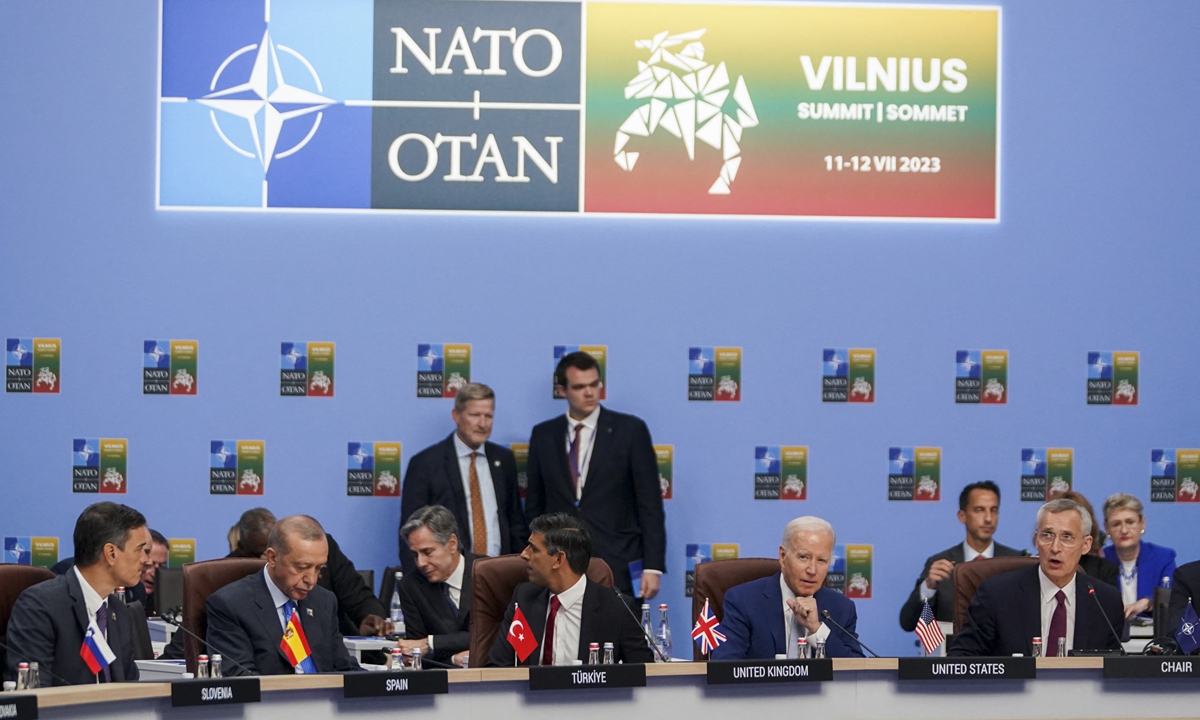
Participants in the meeting of the North Atlantic Council attend the NATO Summit in Vilnius on July 11, 2023. Photo: AFP
NATO’s cybersecurity policy is being hijacked by certain member states, resulting in double standards and self-contradictions, the Chinese Foreign Ministry said in response to NATO’s accusation that China’s cyber activities could reach the level of armed attack, challenge the bloc’s interests and security and trigger the bloc’s collective defense.
NATO heads of state accused China in their communiqué of its cyber operations, confrontational rhetoric, and disinformation target Allies and harm Alliance security, claiming that China is increasingly challenging the rules-based international order, adding that a single or cumulative set of malicious cyber activities could reach the level of armed attack and could lead the North Atlantic Council to invoke Article 5 of the Washington Treaty.
In response, Chinese Foreign Ministry spokesperson Wang Wenbin said during a press briefing on Thursday that China has noticed that NATO’s cybersecurity policy is being hijacked by certain member states, resulting in double standards and self-contradictions.
NATO claims that malicious cyber activities can constitute an armed attack and trigger NATO’s collective defense clause, but at the same time, it turns a blind eye to certain member states openly adopting offensive cyber military policies, Wang said.
NATO claims to promote a peaceful cyberspace, but selectively ignores the potential danger of cyberattacks launched by certain member states that could drag nuclear-armed nations into geopolitical conflicts, Wang said.
NATO claims to uphold order in cyberspace, but remains collectively silent when certain member states abandoned the UN consensus by openly including critical infrastructure of other countries as targets for cyberattacks, Wang added.
China hopes that the smaller NATO member states will demonstrate more strategic autonomy in the field of cybersecurity. At the same time, China calls on NATO, especially the larger member states, to comply with the UN framework for responsible state behaviors in cyberspace, and to responsibly work with the international community in maintaining peace and stability in cyberspace.
Global Times




